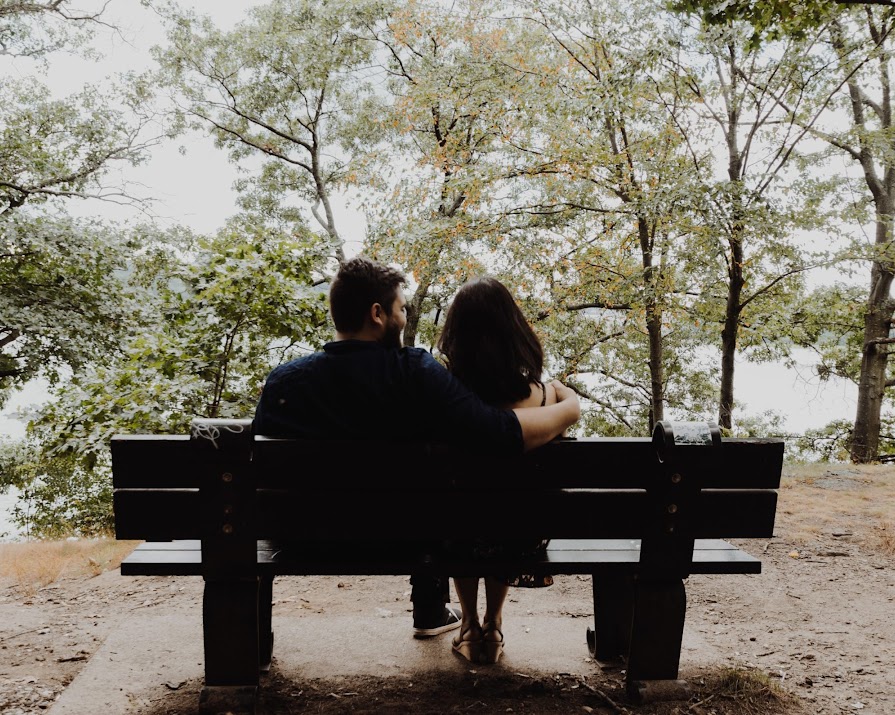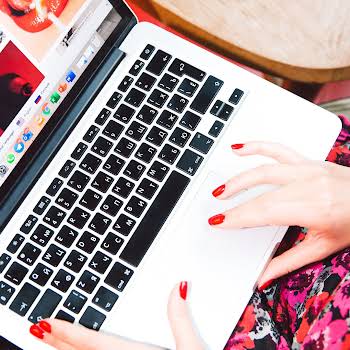
By IMAGE
13th Apr 2020
13th Apr 2020
Never have we needed boundaries more to protect ourselves than right now. Transformation Coach Niamh Ennis shares essential advice on minding yourself in order to help others
When we think of boundaries we can too quickly visualise a wall, a physical structure of separation, something that divides us — but this couldn’t be further from the truth. Good, healthy boundaries can in fact pull us much closer to the people who matter most in our lives.
Never have we needed boundaries more to protect ourselves than right now.
It might feel counter-intuitive to hear that, but what the Covid-19 pandemic has reinforced for many of us, is the harsh reality that we each have a responsibility firstly, to look after ourselves, so that we can in turn be ready to show up for others. The individual protecting themselves is the best way for us to contribute towards the benefit of the collective.
So why then do boundaries receive such negative press? Why do we associate the setting of a boundary with an act of intentional selfishness?
Is it because we feel that in putting ourselves first we are thinking only of ourselves, which in our mind constitutes selfishness, or is it because from the time we were children we were taught that our needs should always come second?
To be truthful, many of us struggle with setting boundaries in our personal and work lives simply because we feel unable or unprepared to try and influence what someone else can say or do.
Choices
Nancy Levin, bestselling author of Setting Boundaries Will Set You Free does not believe we are looking at this correctly. “A boundary is not about someone else’s behaviour changing, it’s about you changing yours. A boundary is not ‘you can’t, you never or you always’… that’s not a boundary. A boundary is MY choice and MY decision on how I’m going to take care of myself.”
What we are living through right now is resulting in much increased levels of stress, worry and anxiety about our health, our jobs, our finances and our security. We also have the added worry of being extremely concerned for our family members, particularly our elderly parents and relatives. But the reality is this, without checking in and listening to what our own needs are first, we run the risk of pouring from that proverbial empty cup!
Lucy Sheridan, the world’s only Comparison Coach and author of The Comparison Cure agrees with this, “Many of us are simply not used to regarding our own needs as important, and in some cases we have also witnessed others being rejected or being the subject of negative chatter for doing so, it causes us to worry that if we look after ourselves then we too will be struck out of our group or friendship circle because we don’t want to be the selfish one – the one with notions!”
So, I want to know how then do we manage this guilt? How can we overcome our feelings that we should be doing more for others and not just thinking about what we want or need?
Nancy Levin focuses much of her work on dispelling this guilt. “In this context guilt is the indicator that we are actually on the right track. Guilt is showing us that what we are doing is honouring ourselves instead of always doing for others,” she explains.
Levin wants us to understand that “it is not an either/or but in fact a both/and situation. Most people just cannot hear that. When I say take yourself into account first, they hear take yourself into account only. There’s a huge difference.”
So what happens to us if we don’t have healthy boundaries in place?
Lucy Sheridan says it puts “incredible strain on us, including our emotional and mental health. They are a fundamental part of looking after ourselves — don’t just tell people your boundaries, show them.”
Okay, so I believe I deserve better boundaries, I feel I am ready to introduce and implement them in my life, what do I do next? Where do I begin?
According to Nancy Levin you do the ‘Boundary Ninja Move’. She suggests you ask yourself “Can I consider my own needs first before I consider everyone else? Again, many people will hear this as who are you just to consider yourself with all that is happening in the world? But I never said that.”
In my life as a transformation coach, I work with women from all over the world, who are looking to make real change in their lives and who are having to adapt to change happening all around them.
People-pleasing
Many of them have identified a need for better boundaries, but also acknowledge that when they are people-pleasing, peacekeeping or conflict avoidant that they have left themselves on the back burner. They have disconnected from themselves, mostly, because they are just too scared of being abandoned by others so they continue to live with abandoning themselves.
A real indicator that a boundary needs to be put in place is when we feel resentment rising inside of us. We hear ourselves giving out that people are constantly crossing our boundaries but the truth of the matter is WE are allowing them to be crossed. Our boundaries are ours to maintain – they don’t belong to anyone else.
One of my clients, Ruth, admits she can see this clearly now, six months after she set about putting boundaries in place in her life. “Setting boundaries helped me slowly respect myself, my time and my needs more than I had ever done before. I was afraid of not being liked or accepted and of being alone. Admittedly, it was uncomfortable at the beginning, but now I can see the benefits and feel grateful that they are now in place.
“Boundaries have helped me evaluate who is bringing what to my table. Who and what is helping me heal, grow, think and evolve and, more importantly, who and what is not.”
So what have YOU learned about boundaries?
Boundaries are the limits that we decide work for us in how people can treat us, what we will tolerate or accept, how they can behave around us, and what they can expect in return from us.
Without them we can end up spending so much of our lives keeping others happy, doing what they want and in turn totally disconnecting from our own needs and wants.
If you have no boundaries you might tend to feel hard done by because others will continue to take advantage of you in both obvious and subtle ways. You possibly feel overlooked at work, in your family, and in your social circles. You might even be the sort of person that things always seem to go wrong for.
But try to remember that boundaries are not something that will or should make you miserable. So many of us are afraid to put boundaries in place, for fear that we will make ourselves less likeable. The reverse tends in fact to be true. If we set better boundaries, we will then attract those to us, who are willing to respect our decisions and want nothing but the best for us.
Keep in mind that you don’t have to explain or defend your boundaries to anyone. You just need to set them. Start there.
Four clues that you need better boundaries
1. You spend an unhealthy amount of time and energy responding to what other people want you to do above what you, deep down, would love to do. You find yourself feeling steamrolled with little say over how you get to spend your time and you start to feel more and resentful over time. You are totally disconnected from yourself.
2. You absolutely hate letting other people down. Admit it, you’re a people-pleaser. You tend to go along with other people’s plans or are just too worried about letting anyone else down that you hear yourself repeatedly saying yes when you really want to say no.
3. You are very familiar with feeling hard done by. You believe others take advantage of you in both noticeable and subtle ways. You might even feel a little overlooked in your family, friendship groups or workplace. There is a lot of blame going on.
4. People are forever assuming that you are always available and on hand to help them with their requests or demands. You are constantly at the beck and call of others. If they need something you’re the first port of call even if others are available to them. You feel disrespected and disempowered, a lot.
Niamh Ennis is Ireland’s leading Transformation Coach www.niamhennis.com, Niamh has just created and launched her innovative BOUNCE BACK Mentoring Programme for those who may have lost their jobs, or need to pivot in their career due to uncertainty and are now seriously considering making their passion their business.
For more information see http://bit.ly/NEBBACK
Photo: Unsplash
Read more: How I finally learned how to set boundaries and say no
Read more: ‘I lost the 3 most important people in my life in a matter of years. This is what it taught me about the grieving process’
Read more: How to prime your mind (and body) for sleep when you can’t switch off






















